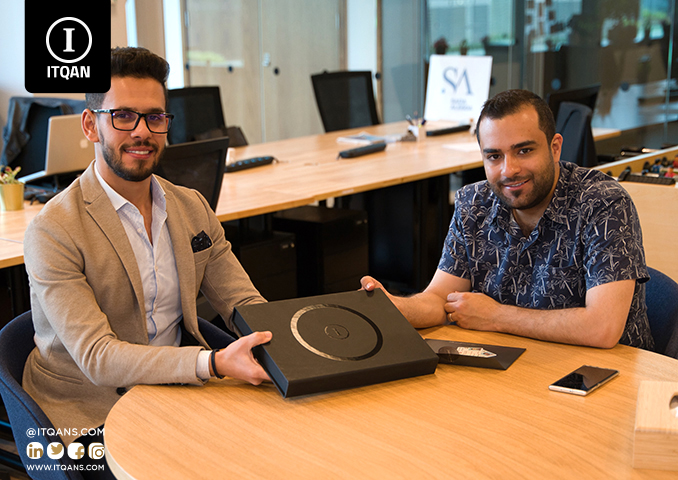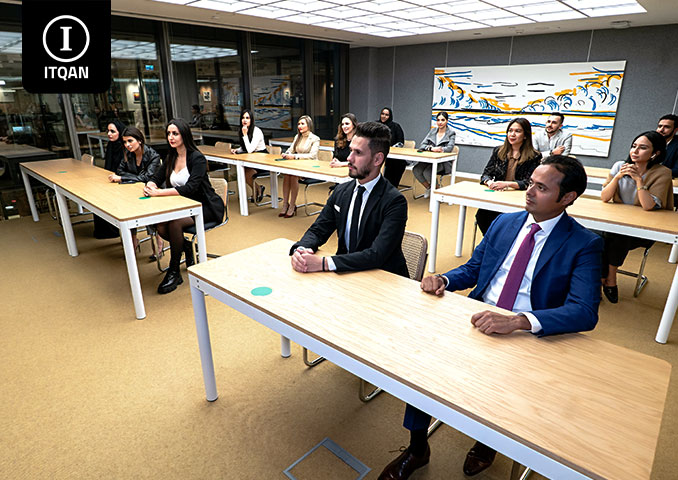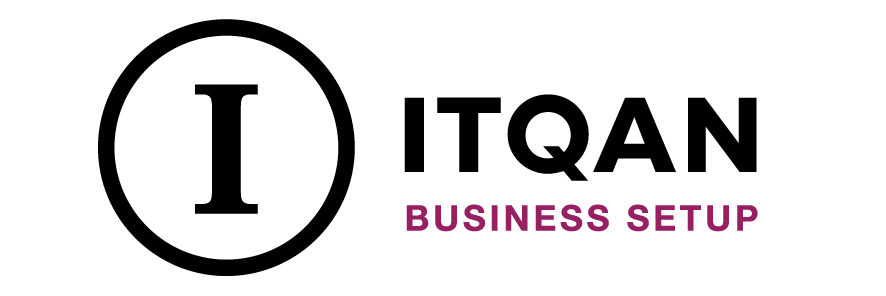
10 Feb Free zones in Dubai
Dubai Free Zone is characterized by special legislation that provides a flexible and favorable business environment for companies from all sectors. Among these areas, Dubai’s free zones stand out as a major center for investment and trade.
It allows companies established in Dubai’s free zones to benefit from a variety of advantages, including easy access to the Middle East and North Africa market, flexible legislation, customs facilities, and no income taxes.
These free zones in Dubai come in different shapes and sizes, ranging from major industrial areas to areas with special specializations such as the Dubai Healthcare City Free Zone, which focuses on the medical and health sector.
Through this article, we will explore the world of free zones in Dubai and their importance to the local and global economy, with a particular focus on the role of the word “free zones” in supporting economic growth and innovation in Dubai.

Free zones in Dubai
The importance of free zones as a center for global business
Dubai’s free zones are distinguished areas that play an important and vital role as centers for global business. Here are some of their importance:
- Facilitating international trade: Free zones provide a favorable environment to facilitate international trade. They provide easy customs and tax facilities, making them attractive areas for companies engaged in the exchange of goods and services across borders. Freedom of trade, import and export is stimulated in these regions, which enhances commercial activity and increases the volume of global trade.
- Advanced infrastructure: Free zones are distinguished by their advanced infrastructure and modern facilities. Free zones provide a wide range of commercial and logistical facilities and facilities such as ports, airports, storage areas, warehouses, and specialized industrial areas. This facilitates the movement of goods and commodities and provides an ideal infrastructure for global companies.
- Foreign Direct Investment: Free zones act as magnets for foreign direct investment. These areas enjoy flexible and easy investment policies and laws, and provide legal protection and facilities for foreign companies. International companies are encouraged to invest in these regions to take advantage of the available economic facilities and opportunities.
- Promoting innovation and technology: Free zones play a role in promoting innovation and technology. These areas provide a suitable environment for emerging and innovative companies, and provide platforms for knowledge exchange and cooperation between different companies and institutions. Advanced technology and innovation are encouraged in these regions, which enhances economic development and competitiveness at the global level.
- Job creation: Free zones are an important source of job creation. These areas provide local and expatriate job opportunities, act as an engine for economic growth and contribute to improving the standard of economic and social life in the region.
- Enhancing global presence: Free zones serve as a global platform for business. It attracts international companies and investors from various countries, which contributes to strengthening the region’s global presence and attracting capital, talent and expertise. These regions form a global network of trade and business, strengthening economic ties between countries and other regions.
In short, free zones are important places for global business because of their ability to facilitate international trade, provide advanced infrastructure, attract foreign direct investment, promote innovation and technology, create jobs, and enhance global presence. Free zones play a vital role in promoting economic growth and strengthening global economic ties.
Definition and importance of free zones in Dubai
Dubai ‘s free zones are an essential part of the local economy and play a vital role in promoting economic growth and attracting foreign investment. Free zones are defined as special zones that enjoy economic self-sovereignty, where companies located in them are exempt from some government taxes and fees, in addition to specific time periods for obtaining and renewing business licenses.
Dubai’s free zones promote commercial and industrial activity by providing an ideal environment for companies to invest and grow. It aims to enhance the exchange of knowledge and technology and promote global trade by providing modern infrastructure and advanced logistical services.
In general, free zones in Dubai are considered a major driver of the local economy, as they contribute to increasing exports and enhancing the competitiveness of companies located in them, in addition to enhancing technology and innovation in various sectors.

The importance of free zones as a center for global business
Types of free zones in the UAE
There are three types of free zones in Dubai, which we have listed in several points so that you can learn all the details about these zones, which are as follows:
- Industrial areas: These areas provide specialized infrastructure for companies operating in the industrial and manufacturing sector. Industrial areas include industrial facilities and spaces equipped with machines and equipment necessary to carry out industrial operations.
- Logistics zones: These zones focus on providing logistics. There are three main types of free zones in Dubai:
- Industrial areas: These areas provide specialized infrastructure for companies operating in the industrial and manufacturing sector. Industrial areas include industrial facilities and spaces equipped with machines and equipment necessary to carry out industrial operations.
- Logistics zones: These zones focus on providing infrastructure and advanced logistics services to companies operating in the field of transportation, distribution, and warehousing. It is characterized by providing facilities such as warehouses, distribution centers, and unloading and shipping areas.
- Special Economic Zones: These zones are considered an integrated, multi-sector economic environment. Companies operating in these regions include sectors such as financial services, trade, technology and innovation. It is distinguished by providing specialized administrative, financial and legal services.
Companies interested in benefiting from free zones in Dubai must familiarize themselves with the requirements of each type of these zones and ensure that their commercial activities are compatible with the local laws and regulations in force in each zone. You can benefit from some details and information through the Itqan Company team, which is distinguished by its great experience in the field of establishing… Companies in free zones.
How to establish a company and the required procedures
In order to establish a company in the Dubai Free Zone, you must follow the following procedures, which can be helped by the Itqan Company team, which has many distinctive features in this field. Follow the steps as follows:
- Choosing the type of company: A company can be established in the free zone in the form of a sole proprietorship, a limited liability company, or a partnership.
- Site selection: You must choose the appropriate location within the free zone and ensure the availability of the necessary infrastructure.
- Submitting a registration application: An application to register the company must be submitted to the relevant authority in the free zone, along with submitting all required documents.
- Obtaining licenses: After accepting the registration application, you must obtain the necessary licenses to practice commercial activity.
- Work Visas: The necessary work visas must be arranged for the employees who will be working in the company.
- Registration in the Commercial Registry: After obtaining licenses and work visas, the company must be registered in the relevant commercial registry.
- Opening a bank account: A bank account must be opened in the name of the company to manage financial operations.
- Insurance: The company must obtain the necessary insurance in accordance with local laws.
- Compliance with laws and legislation: The company must comply with all laws and legislation in force in the free zone.
These are the general procedures required to be followed to establish a company in the Dubai Free Zone. It is always preferable to seek advice from a local attorney or legal advisor to ensure full compliance with local laws and regulations.
At the conclusion of our article, we talked about many details about Dubai’s free zones emerging as a major hub for growth and investment. These areas reflect the spirit of innovation and development in the Emirate of Dubai, and offer diverse opportunities for companies from different sectors. Through the philosophy of “excellence in everything we do,” Dubai Free Zones seeks to provide a stimulating and advanced business environment that facilitates trade and promotes innovation.
Thanks to the advanced infrastructure and distinguished services provided by free zones, Dubai is a preferred destination for companies wishing to expand and grow. Dubai’s focus on developing innovation and improving the business environment makes it one of the most attractive cities for investors and entrepreneurs. Thanks to its pioneering vision and innovative strategy, Dubai remains a place of renewed growth and prosperity, and free zones are an essential part of this journey towards the future.
The most important frequently asked questions about free zones in Dubai
What are the free zones in Dubai?
Free zones in Dubai are special zones that provide a favorable business environment for companies, as they enjoy economic self-sovereignty and companies are exempt from some fees and taxes.
What benefits do free zones offer companies?
Free zones in Dubai offer many benefits such as customs facilities, no income taxes, and easy access to the local and regional market.
What activities can be practiced in free zones?
A wide range of activities can be undertaken in free zones, including manufacturing, trade, logistics, research and development, and technology.
What are the necessary procedures to establish a company in the free zone?
Procedures include submitting a registration application, obtaining the necessary licenses, securing the necessary visas for workers, and registering in the commercial registry.



